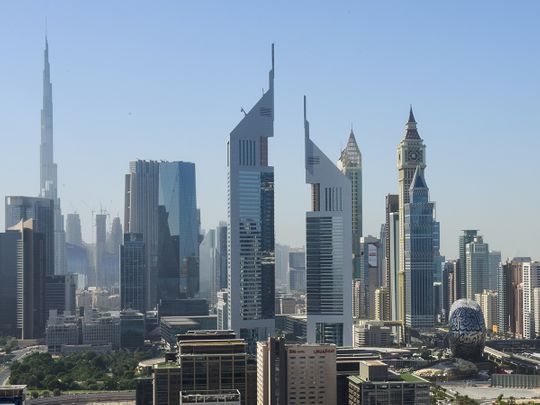
Dubai: Dubai's non-oil private sector economy continued to expand in May, latest Purchasing Managers’ Index (PMI) data showed.
Although the rate of growth cooled off from April's robust level, output and new business continued to grow.
The headline IHS Markit Dubai PMI, after posting a 17-month high of 53.5 in April, fell back to 51.6 in May. However, this still signalled the second quickest improvement in operating conditions for ten months
"After rising for three months in a row, the Dubai PMI slipped from 53.5 in April to 51.6 in May, to signal a more modest improvement in non-oil business conditions,” said David Owen, Economist at IHS Markit.
New business rose only modestly during May, after expanding to the greatest extent for one-and-a-half years in April. Travel & Tourism was again the weakest of the monitored sectors, as new work declined for the fourth time in five months.
Slower job growth
May's PMI data showed there was a renewed decrease in employment. Softer rises in both output and new orders led companies to reduce their staffing levels in the latest survey period. The fall in employment was the second recorded in three months, but only slight overall.
"The slowdown led firms to reduce their workforce numbers in May, but the overall rate of job losses was only marginal. Price pressures on inputs remained weak, allowing firms to decrease their selling prices after recording the first uptick in three years in April," said Owen.
Input purchases and inventories rose at the slowest rates since February, as stronger demand pressure was partly offset by efforts to run down existing stocks.
Faster rise in construction
Construction was the only monitored sector to see a faster rise in output during the month, with Wholesale & Retail seeing a slower expansion and Travel & Tourism registering a renewed decrease in activity.
Input prices picked up for the fourth month in a row, but the overall rate of inflation weakened to just a marginal pace. As a result, there was a renewed decrease in output charges, after firms raised their prices for the first time in three years in April. According to panellists, discounts were offered to finalise orders and win new clients.








